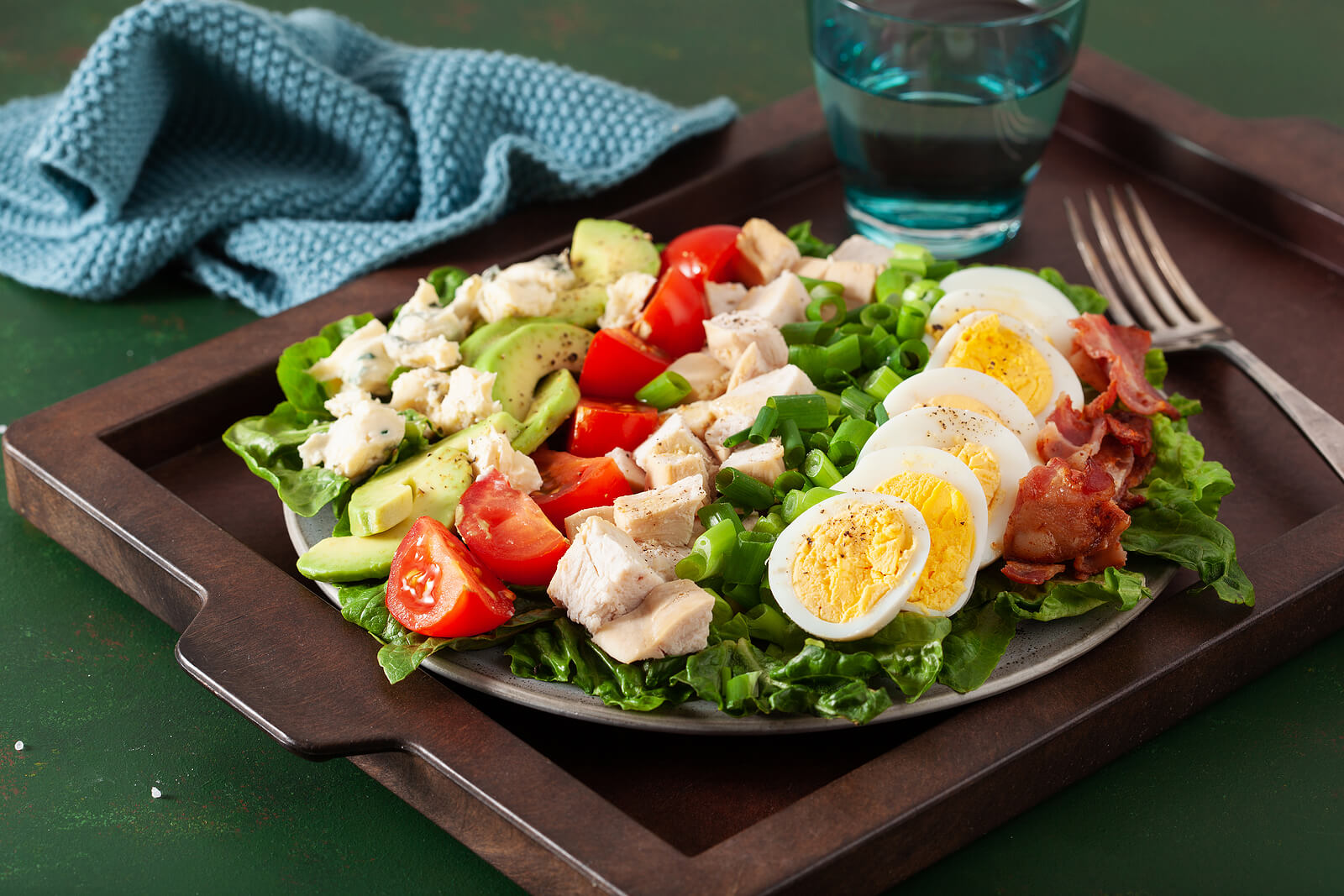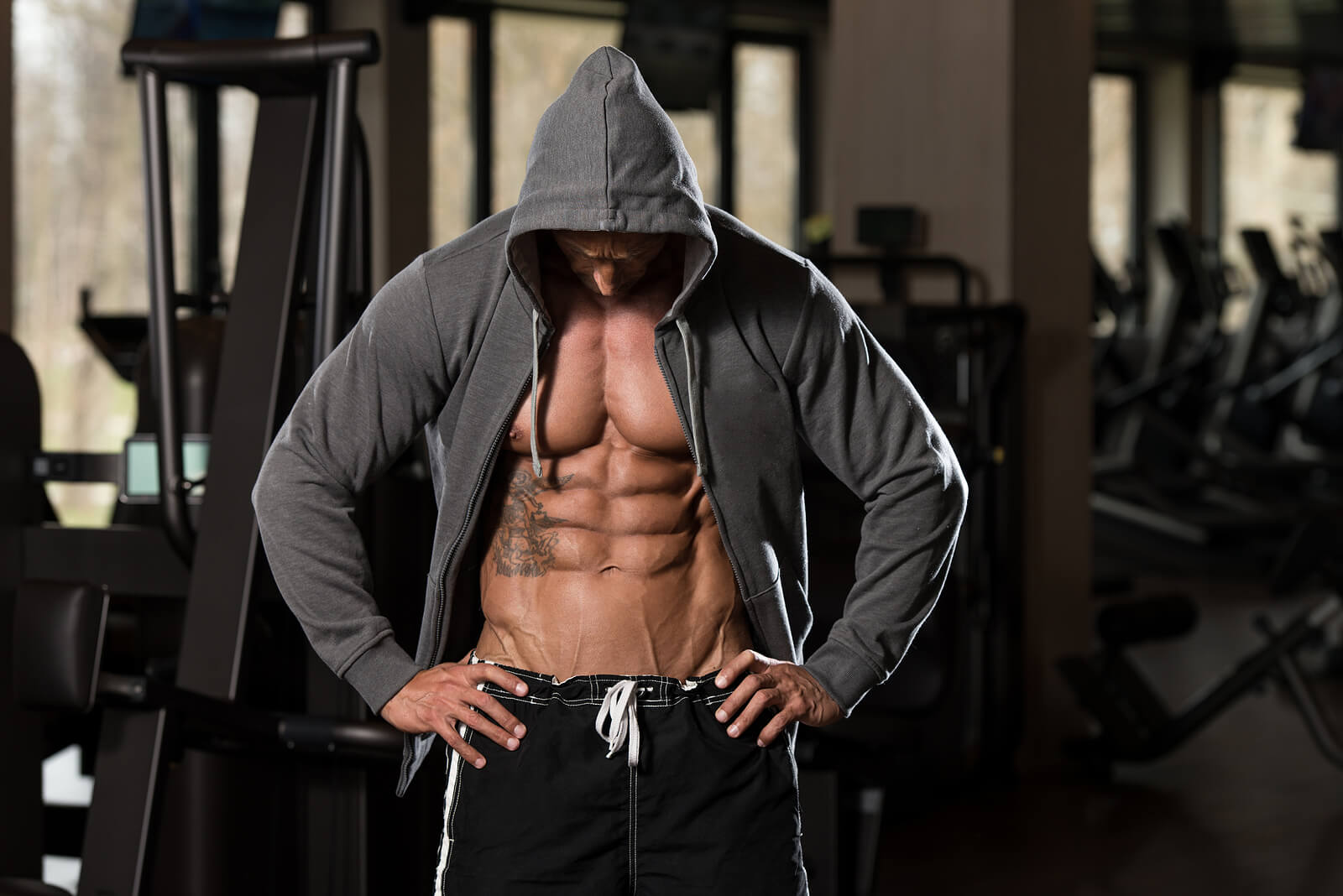If you want to build abs at any age, it’s important to understand that there is no quick fix or magic formula. Building a strong core takes time, dedication, and consistency. Whether you’re in your 20s or your 60s, you can develop a strong set of abs with the right approach.
One of the most important things you can do to build abs at any age is to focus on your diet. No matter how many crunches or sit-ups you do, you won’t see results if your abs are covered by a layer of fat.
To reduce body fat, you need to focus on eating a healthy, balanced diet that is rich in lean protein, fruits, vegetables, and whole grains. Avoid sugary, processed foods and focus on eating whole, nutrient-dense foods that will fuel your body and help you achieve your goals.
Understanding the Anatomy of Abs
To build abs at any age, it’s important to understand the anatomy of your abdominal muscles. Your abs are made up of several muscles, including the rectus abdominis, external obliques, and internal obliques. These muscles work together to help you stabilize your core and move your torso.
The rectus abdominis is the muscle that runs down the center of your abdomen. It’s often referred to as the “six-pack” muscle because it creates the appearance of six individual muscles when it’s well-defined. The external obliques are located on either side of the rectus abdominis and help you twist and bend your torso. The internal obliques are located beneath the external obliques and also help you twist and bend your torso.
To build strong abs, you’ll need to focus on exercises that target all of these muscles. Crunches and sit-ups can help you work your rectus abdominis, while exercises like side planks and Russian twists can help you strengthen your obliques.
It’s also important to remember that your abs are just one part of your core muscles. Your core includes all of the muscles in your torso, including your back muscles and hip muscles. Strengthening your entire core can help you improve your posture, reduce your risk of injury, and improve your athletic performance.
In summary, to build abs at any age, you’ll need to focus on exercises that target your entire core, including your rectus abdominis, external obliques, and internal obliques. By understanding the anatomy of your abs and working to strengthen your entire core, you can achieve a strong and healthy midsection.
The Impact of Age on Abs
As you age, building abs become more challenging, but it’s not impossible. Your body goes through various changes as you age, and these changes impact your ability to build and maintain muscle mass. Here’s how age affects your abs:
Puberty
During puberty, your body goes through a significant growth spurt, and your muscles develop rapidly. This is the time when you can build a solid foundation for your abs. However, if you miss this opportunity, it becomes more challenging to build abs later in life.
Age-Related Muscle Loss
As you age, your body experiences age-related muscle loss, also known as sarcopenia. This condition causes a decline in muscle mass, strength, and function. It affects both men and women and typically starts in your 30s. By the time you reach your 60s, you could have lost up to 30% of your muscle mass.
Muscle Fibers
Your muscle fibers also change as you age. You have two types of muscle fibers: slow-twitch and fast-twitch. Slow-twitch fibers are responsible for endurance activities, while fast-twitch fibers are responsible for power and explosiveness. As you age, you lose fast-twitch fibers, which makes it harder to build and maintain muscle mass.
Adults
Building abs as an adult requires a combination of a healthy diet, cardiovascular exercise, and strength training. You need to reduce your body fat percentage to reveal your abs. This means you need to eat a balanced diet that is low in calories and high in protein. You also need to do cardio exercises to burn fat, such as running, cycling, or swimming.
Strength training is also essential for building abs. You need to do exercises that target your abs, such as crunches, planks, and leg raises. However, you also need to work on your other muscle groups, such as your back, chest, and arms. This will help you build overall muscle mass, which will make it easier to reveal your abs.
In conclusion, building abs at any age is possible, but it requires a lot of hard work and dedication. You need to eat a healthy diet, do cardio exercises, and strength train regularly. You also need to be patient and consistent, as building abs takes time. By following these tips, you can build strong, defined abs at any age.
Dietary Requirements for Building Abs
If you want to build abs at any age, you must pay attention to your diet. Your diet is a crucial factor in developing a lean and toned midsection. Here are some dietary requirements you should consider:
Protein
Protein is essential for building muscle, and building abs is no exception. Aim to consume at least 0.8 grams of protein per pound of body weight per day. Good sources of protein include chicken, fish, lean beef, tofu, and legumes.
Healthy Diet
To build abs, you need to follow a healthy diet. This means consuming a variety of nutrient-dense foods that provide your body with the vitamins and minerals it needs to function properly. Avoid processed foods, sugary drinks, and excessive amounts of alcohol.
Fiber
Fiber is important for digestive health and can help you feel full longer. Good sources of fiber include fruits, vegetables, whole grains, and legumes.
Water
Drinking plenty of water is essential for building abs. Water helps flush out toxins and can help you feel full, reducing your overall calorie intake.
Healthy Fats
Healthy fats are important for overall health and can help you feel full longer. Good sources of healthy fats include nuts, seeds, avocados, and olive oil.
Carbs
Carbs are an important source of energy, but you should aim to consume complex carbs, such as whole grains, fruits, and vegetables, rather than simple carbs like white bread and sugar.
Low-Cal
To build abs, you need to be in a calorie deficit, which means consuming fewer calories than you burn. Focus on low-calorie, nutrient-dense foods to help you achieve this.
Fruits and Vegetables
Fruits and vegetables are packed with vitamins, minerals, and fiber, making them an essential part of any healthy diet. Aim to consume a variety of colorful fruits and vegetables to ensure you are getting a wide range of nutrients.
Potatoes
Potatoes are a great source of complex carbs and fiber, making them a healthy addition to any diet. Just be sure to avoid fried or processed potato products, which can be high in calories and unhealthy fats.
By following these dietary requirements, you can build abs at any age. Remember to focus on nutrient-dense, whole foods and avoid processed and sugary foods. With time, dedication, and the right diet, you can achieve a lean and toned midsection.
Exercise Regime for Abs
When it comes to building abs at any age, exercise is essential. You need to work out regularly and consistently to see results. Here are some exercises that you can incorporate into your workout routine to build strong and defined abs.
Plank
The plank is a classic exercise that targets your abs and strengthens your core. To do a plank, get into a push-up position, but instead of lowering yourself down, hold your body in a straight line from your head to your heels for as long as you can. Start with 30 seconds and gradually work your way up to a minute or more.
Cardio
Cardio exercises such as jogging, cycling, or swimming are great for burning fat and revealing your abs. Aim for 30 minutes of moderate-intensity cardio at least three times a week. You can also try high-intensity interval training (HIIT) to challenge yourself and boost your endurance.
Strength Training
Strength training is crucial for building muscle and increasing your metabolism. Resistance training with weights or bodyweight exercises such as squats, push-ups, and deadlifts can help you build a strong core and sculpt your abs. Focus on compound moves that work for multiple muscle groups at once and aim for higher reps to stimulate muscle growth.
Gym Workouts
If you have access to a gym, try using equipment such as the cable machine, medicine ball, or stability ball to add variety to your ab workout. You can also try classes such as Pilates or yoga, which focus on core strength and stability.
Remember to always warm up before your workout and cool down afterward to prevent injury and aid recovery. With a consistent exercise regime that includes a mix of cardio, strength training, and core exercises, you can build strong and defined abs at any age.
The Role of Body Weight and Fat
If you want to build abs at any age, you need to pay attention to your body weight and fat. While body weight is an important factor, body fat percentage is what really matters. Even if you have a low body weight, you may still have a high body fat percentage, which can make it difficult to build abs.
To build abs, you need to have low body fat. This means losing fat and getting leaner. The more ripped you are, the more visible your abs will be. To achieve this, you need to focus on fat loss. This can be done through a combination of diet and exercise.
Reducing your body fat percentage can be achieved by consuming fewer calories than you burn. This can be done by following a healthy diet that is rich in protein, fiber, and healthy fats while limiting your intake of processed foods, sugar, and unhealthy fats. Additionally, engaging in regular cardiovascular exercise can help you burn calories and reduce your body fat percentage.
In addition to reducing body fat, building muscle is also important for achieving a lean and ripped physique. This can be done through strength training exercises that target your abs and other muscle groups. By building muscle, you can increase your metabolism, which can help you burn more calories and reduce your body fat percentage.
It’s important to note that building abs takes time and effort. It’s not something that can be achieved overnight. However, by focusing on reducing your body fat percentage and building muscle, you can achieve a lean and ripped physique at any age.
Importance of Lifestyle Choices
If you want to build abs at any age, it’s important to make lifestyle choices that will support your goal. Your lifestyle choices can make a big difference in your ability to build and maintain strong abs. Here are some lifestyle factors that can impact your ability to build abs:
Stress
Stress can negatively impact your body’s ability to build muscle, including abdominal muscles. When you’re stressed, your body releases cortisol, a hormone that can cause your body to store fat in the abdominal area. To reduce stress, try meditation, deep breathing, or other relaxation techniques.
Sleep
Getting enough sleep is important for muscle recovery and growth. When you don’t get enough sleep, your body produces less growth hormone, which can make it harder to build muscle. Aim for at least 7-8 hours of sleep per night to support your muscle-building goals.
Balance
Building strong abs requires a balance of different types of exercises, including cardio, strength training, and core exercises. Be sure to incorporate a variety of exercises into your routine to avoid overworking one muscle group.
Consistency
Consistency is key when it comes to building strong abs. Aim to exercise your abs at least 2-3 times per week, and stick to a regular workout schedule. Over time, consistent exercise will help you build strong, defined abs.
Meditation
Meditation can help reduce stress and improve focus, which can support your muscle-building goals. Try incorporating a few minutes of meditation into your daily routine to help support your overall health and fitness.
By making lifestyle choices that support your muscle-building goals, you can build strong, defined abs at any age. Remember to be consistent, balance your workouts, and prioritize sleep and stress reduction to support your body’s ability to build muscle.
- Six-pack Abs at any Age! Build abs and core at home or the gym, into your 40’s, 50’s and 60’s.
- How To Get 6 Pack ABS After 60 (TIPS AND EXERCISES!)
- Unlimited Motivation – How this Mother Got 6 Pack abs at the Age of 40
Genetic Factors and Abs
When it comes to building abs, genetics can play a role in how easy or difficult it is to get visible results. Some people may have a genetic predisposition to having a more defined abdominal area, while others may have to work harder to achieve the same results.
Research has shown that genetic factors can influence the development of abdominal muscles. For example, a study published in the Journal of Applied Physiology found that muscle fiber type distribution is partially determined by genetics. This means that some people may have a higher percentage of fast-twitch muscle fibers, which are better suited for explosive movements like sprinting and jumping, while others may have a higher percentage of slow-twitch muscle fibers, which are better suited for endurance activities like distance running.
Another study published in the International Journal of Sports Medicine found that genetic factors can also influence the size and strength of abdominal muscles. The study looked at the abdominal muscle size and strength of twins and found that genetic factors accounted for up to 50% of the variation in muscle size and strength.
While genetics can play a role in the development of abdominal muscles, it’s important to remember that it’s not the only factor. Your diet, exercise routine, and overall lifestyle can also have a significant impact on your ability to build abs.
In conclusion, while genetics can influence the development of abdominal muscles, it’s not the only factor. With a consistent exercise routine, a healthy diet, and a commitment to your fitness goals, you can build strong and defined abs at any age.
Role of Hormones in Building Abs
When it comes to building abs, hormones play a crucial role. Hormones are chemical messengers that regulate various bodily functions, including muscle growth and fat loss. Here are some hormones that can impact your ability to build abs:
Insulin
Insulin is a hormone that regulates blood sugar levels. When you eat carbohydrates, your body releases insulin to help transport glucose into your cells. Insulin also promotes the storage of fat, particularly in the abdominal region. To build abs, it’s important to keep your insulin levels in check. This can be achieved by consuming a balanced diet that includes complex carbohydrates, lean protein, and healthy fats.
Testosterone
Testosterone is a hormone that is primarily responsible for muscle growth. It helps to increase muscle protein synthesis, which is the process by which your body builds new muscle tissue. Testosterone also helps to reduce body fat, particularly in the abdominal region. As you age, your testosterone levels naturally decline, which can make it more difficult to build and maintain muscle mass. However, regular exercise and a healthy diet can help to boost testosterone levels naturally.
Cortisol
Cortisol is a hormone that is released in response to stress. It helps to regulate blood sugar levels and blood pressure. However, chronic stress can lead to elevated cortisol levels, which can promote the storage of fat, particularly in the abdominal region. To reduce cortisol levels, it’s important to manage stress through techniques such as meditation, yoga, or deep breathing exercises.
In summary, hormones play a crucial role in building abs. By maintaining a healthy balance of insulin, testosterone, and cortisol, you can optimize your body’s ability to build muscle and burn fat.
Professional Guidance for Abs
When it comes to building abs, seeking professional guidance from a personal trainer or fitness expert can be helpful. They can provide you with a customized fitness routine that suits your age, fitness level, and goals.
A personal trainer can also guide you through proper form and technique for exercises that target your abs. This is important as incorrect forms can lead to injury and hinder your progress.
If you’re new to fitness, a personal trainer can help you start your fitness journey on the right track. They can provide you with a structured routine that gradually builds up your strength and endurance while keeping you motivated.
It’s important to note that building abs takes time and consistency. A personal trainer can help you set realistic goals and track your progress over time. This can help you stay motivated and focused on your fitness journey.
Additionally, fitness experts can provide you with guidance on proper nutrition to support your ab-building goals. A balanced diet that includes protein, healthy fats, and complex carbohydrates can help fuel your body for optimal performance and recovery.
In summary, seeking professional guidance from a personal trainer or fitness expert can provide you with the knowledge and support you need to build abs at any age. They can help you create a customized fitness routine, guide you through proper form and technique, and provide you with nutrition guidance to support your goals.
Special Considerations
When it comes to building abs at any age, there are a few special considerations you need to keep in mind. These include:
Health
Before starting any exercise program, it’s important to consult with your doctor to ensure that you are healthy enough to participate. This is especially important if you have any pre-existing medical conditions, such as heart disease or back pain.
Back Pain
If you have a history of back pain, it’s important to be cautious when doing exercises that target your abs. Make sure to choose exercises that don’t put too much strain on your back, such as planks or crunches with your feet on the ground. You can also use equipment such as an exercise ball or a Roman chair to help support your back.
Heart Disease
If you have heart disease, it’s important to choose exercises that won’t put too much strain on your heart. Low-impact exercises such as walking, swimming, or cycling are good choices. You can also try exercises that focus on your core, such as planks or bridges.
Patients
If you are a patient recovering from surgery or an injury, it’s important to work with your doctor or physical therapist to develop an exercise program that is safe and effective for you. They can help you choose exercises that won’t exacerbate your condition and can also provide guidance on proper form and technique.
Bones
As you age, your bones may become weaker and more prone to injury. To prevent this, it’s important to include weight-bearing exercises in your workout routine. This can include exercises such as squats or lunges, which help to strengthen your bones and improve your balance.
By keeping these special considerations in mind, you can safely and effectively build abs at any age. Remember to start slowly, listen to your body, and always consult with your doctor before starting any new exercise program.






Leave a Reply